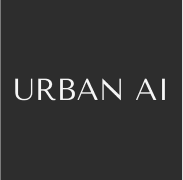MaAI offers exceptional paid internships through leading industry partnerships, giving students hands-on experience with cutting-edge companies. These opportunities bridge academia and practice, expand professional networks, and provide financial support—placing students at the forefront of AI in architecture and technology.


Master in AI for Architecture & the Built Environment
MaAI is dedicated to leading the change in decarbonising human activities and crafting more sustainable and resilient urbanisation for our planet.


Why MaAI?
MaAI offers students the opportunity to transform the way we conceive, design, and build through AI, addressing the critical challenges posed by environmental and technological shifts. MaAI also provides students the chance to pitch AI-driven ideas to venture capital firms, collaborate with industry leaders, and join accelerators to refine their concepts. Its interdisciplinary approach, ensures real-world applications that directly impact the built environment.
Programme Structure
FormatsThe programme focuses on practical, real-world AI applications by collaborating with industries, governing bodies, and private institutions. These partners help shape the curriculum and contribute to the development of real case studies and projects. Students work on projects that directly impact the built environment, equipping them to tackle the complex challenges of today’s architectural field.
The programme is structured over three trimesters per academic year. The content revolves around three vertical themes: Urban Tech, Smart Construction, Natural Ecosystems, and three transversal objectives: Regenerative Design, Carbon Neutrality, Co-Design.
The first module introduces the intersection of design, architecture, and urban planning with AI, focusing on programming, computational design, and sustainability.
Key topics include data analytics for urban planning, digital interfaces, and visual storytelling for project communication. Expert talks and case studies highlight AI’s impact on urban tech, smart construction, and green integration.
Students also explore AI’s potential, ethics, and responsibilities, with business skills for project implementation and research methods to support critical thinking on AI’s role in architecture and society.
The second module deepens AI applications in architecture and urban planning. Students explore advanced AI for design innovation, predictive analytics for sustainability, and user interfaces for smart environments.
Practical workshops address:
[1] Industry challenges, [2] Ethical AI in open-source, [3] Market strategies, [4] Equipping students to lead in AI-driven architecture.
The third module covers advanced AI design strategies for adaptive, sustainable environments. Students master data science for intelligent design, develop AI-powered applications, and learn market strategies and project dissemination for social impact, preparing them to lead AI integration in architecture from development to public engagement.
Final Project: In the Master Thesis Project, MaAI01 students integrate theory, technical, and business skills to develop AI-driven solutions, addressing current challenges and setting new standards for environmentally and socially conscious co-design.
During the second year of the Master in AI for Architecture & the Built Environment students have the opportunity of working hand in hand with a series of renowned expe ts and industry partners in various fields, to develop an in-depth individual research agenda. Students propose a thesis project, to be developed throughout the year, and are allocated with an Individual Thesis Advisor, Technical Advisor, Business Development and Industry Advisor.
The curriculum of the program gives students the chance to either participate in an accelerator program or embark on a paid internship with renowned architectural and urban design offices around the world that collaborate with the programme. This experience enables students to apply their newfound expertise in real-world settings, contributing to impactful projects, establishing strong future career possibilities and expanding their professional networks.
The second year of MaAI 02 kicks off with a focus on elevating students’ technical skill sets essential for architectural innovation. Alongside this, they engage in the Development of Vertical Themes Projects, which involves applying these technical skills to specialized areas such as sustainability or digital fabrication.
Simultaneously, students undertake courses in Business Innovation Development to prepare for the entrepreneurial aspects of architecture and the built environment.
This year focuses on advancing students’ chosen paths—refining startup ideas or deepening industry practice. Emphasis is on finalizing the Master Thesis, integrating acquired skills, and preparing final design proposals and prototypes for presentation and defense before a jury in June.
Students select one of two paths to specialize their learning experience.
Path 1: The Acceleration Program,is tailored for those looking to develop a startup,emphasizing entrepreneurial skills and innovation.
Path 2: Practice with Industry, allows students to work closely with architectural firms or related industries, applying their knowledge in a practical setting. All internships are remunerated allowing students to receive a professional experience, alongside widening their network and receiving a salary.
This period is integral for students for developing their Thesis, with the chosen path directly influencing their research and project work.
Pitch Event
A Pitching Venture Capitalists Event is organized allowing students to present their startup ideas or industry projects, showcasing their innovative solutions to potential investors and industry leaders.
Master Thesis Book
Students dedicate this period to developing the complete written document or book for their Thesis Project. The work done here will encapsulate the comprehensive research and outcomes from the year, concluding with the submission of two printed copies and the possibility of a scientific publication.
EADA Business School
Recognising the critical need to innovate and develop new business models within architecture, engineering, and construction, MaAI operates within a robust entrepreneurial framework. In collaboration with EADA Business School in Barcelona, the programme offers a unique academic curriculum that integrates Architecture, AI, and Business Development, positioning it as a one-of-a-kind global offering.
At the EADA Residential Training Campus, students will develop leadership skills through immersive experiences that push them out of their comfort zones, fostering personal and professional growth. Additionally, the programme connects students with venture capital events, start-up ecosystems, and industry leaders, providing opportunities to pitch innovative ideas, launch ventures, and engage with renowned accelerators. This interdisciplinary approach encourages collaboration across fields such as computer science, business, environmental sciences, urban planning, and construction, enriching the learning experience and expanding avenues for innovation.
Technical skills
Students of The Master in AI for Architecture & the Built Environment (MaAI) are introduced to a large variety of technological tools and software that are fundamental in order to change the way we think, design and materialise architecture. During the programme students are trained on the latest tools for digital fabrication, advanced computational design, physical computing, and developer tools. Seminars on the following tools and software are conducted:











The MaAI programme is designed for architects, urbanists, designers, computer scientists, engineers, data scientists, entrepreneurs, and economists who aim to lead in the development of AI-powered innovations for socially responsible architecture and urban spaces. If you are passionate about merging architecture with artificial intelligence and aspire to be part of the start-up ecosystem driving decarbonised, resilient urbanisation, MaAI is the programme for you.

Graduates of MaAI will possess the skills and knowledge to drive innovation and shape the future of architectural design and urban development. Career paths include roles such as AI-integrated architect, start-up founder in the built environment tech sector, researcher in AI and architecture, urban design technologist, and innovation strategist within architectural firms, positioning alumni to lead transformative change in the industry.


Areti Markopoulou is a Greek PhD architect, researcher, and urban technologist working at the intersection of architecture and digital technologies. Her work focuses on redefining cities through an ecological and technological spectrum, merging design with biotechnologies, new materials, digital fabrication, and big data. She is the Academic Director at IAAC in Barcelona, and she leads the Advanced Architecture Group, a multidisciplinary research lab exploring how design and science can positively impact the built environment.
Areti co-founded StudioP52, an art/tech gallery activating abandoned industrial warehouses, and served as co-editor of the digital platform Urban Next. She has consulted on and developed projects on topics including urban regeneration through data science, circular construction and multidisciplinary educational models in the digital age.
Markopoulou is the co-author and editor of “Learning Cities: Collective Intelligence Urban Design” (Actar, 2022), “Edible” (TAB, 2022), “ Black Ecologies” (Actar, 2019), and co-author of the forthcoming book “Building Metabolism” (Actar, 2025) supported by the Graham Foundation Grant for Individuals.
She is the Chair of Responsive Cities Symposium that she co-founded in 2016 and served as Head Curator of international exhibitions including co-curating the Tallinn Architecture Biennale (TAB 2022), Future Arena & On Site Robotics (Construmat 2017 & 2019), HyperCity (Shenzhen Bi-city Biennale, 2015), and MyVeryOwnCity (World Bank, BR Bcn 2011).

Angelos Chronis Angelos is the CEO and Co-Founder of Infrared City GmbH as well as Senior Research Engineer at the Austrian Institute of Technology in Vienna and Co-Director of the Master in AI for Architecture & the Built Environment at IAAC.
His work focuses on performative design, simulation, AI and data-driven design and optimization as well as interactive interfaces and AR/VR. He has led the development of various design and integrated simulation systems, such as infrared.city, a ground-breaking AI-driven climate simulation framework.

Eleni is a dynamic and detail-oriented visual communication specialist with extensive experience in UX/UI and information design, based in Barcelona. She has collaborated with institutions and organizations worldwide across social, commercial, and artistic sectors, excelling in transdisciplinary collaborations and participatory design projects.
With a strong ability to translate complex data and abstract ideas into accessible, user-centered visual solutions, Eleni also streamlines program administration efficiently. Her work is driven by a passion for space, books, and progressive social change, balancing both grounded and experimental approaches. She seamlessly blends analog with digital, research with play, and visualizes improvisation to create unique experiences and smart, functional solutions.
Committed to fostering engagement through strategic planning, meticulous organization, and effective communication with diverse stakeholders, Eleni believes in (co)evolution. She constantly seeks creative encounters, new approaches, and fresh perspectives, striving to work on projects that prioritize collaboration, meaningful conversations, and a positive social and environmental impact.
Theodore has been working at the intersection of AI and Design for the last 6 years with a passion for creating AI solutions that generate, extract, and communicate design intelligence. An engineer and computational designer by trade, he quickly turned to AI to solve many of the frustrations of the modern design process. He co-developed and co-founded InFraRed, the world’s first AI-driven, urban performance design solution, where he serves as Chief Scientific Officer. He is the creator of Architext, the world’s first semantic generation model for architecture. He is currently the Generative AI Lead at Aurecon, with a goal to create AI solutions that help optimise design, planning, and delivery processes while fostering collaboration and ensuring people are at the centre of this transformation. He is an active contributor to the open source AI community and a PhD candidate at the Institute of Digital Games, in the University of Malta.
As a Director at Squint/Opera Jan oversees the creative and digital excellence for many international projects. He builds long-term relationships with leading industry partners and is instrumental in furthering the studio’s presence in the built environment and green technology industries. Jan’s wide network keeps him up-to-date on the latest technology and industry trends, which he brings back in-house, pushing the boundaries of Squint/Opera’s work. Before joining Squint, Jan worked as a landscape architect on many large-scale projects, and developed a deep knowledge of the built environment. With two decades of experience he has an intimate understanding of the world of architecture and urban design. In 2023 Jan Bunge joined IAAC as MaCT Faculty.
Mara Balestrini is an accomplished Human-Computer Interaction (HCI) researcher and practitioner with 15 years of experience in spearheading digital transformation and innovation projects. Currently, she works at the Innovation Laboratory of the Inter-American Development Bank (IDB Lab), where she leads the digital transformation program and provides guidance on using disruptive technologies in operations.
Prior to this role, Mara served as an advisor to the Secretary of State for Digitalization and Artificial Intelligence in the Government of Spain and as the CEO of the innovation consultancy Ideas for Change. She is also a co-founder of SalusCoop, a pioneering Spanish cooperative dedicated to citizens’ health data.
Mara’s educational background includes a PhD in Computer Science from University College London (UCL), an MSc in Cognitive Systems and Interactive Media from Pompeu Fabra University (UPF), and a BA in Audiovisual Communications. Beyond her professional roles, she is a member of the board of trustees at IAAC and a research fellow at ESADE’s Center for Public Governance (EsadeGov). Her work has been recognized with awards from ACM CHI, ACM CSCW, and Ars Electronica, and has been featured in prominent media outlets such as the BBC, The Guardian, The Financial Times, and El País.

IAAC Graduation Day 2024: A Celebration of Collaborative Accomplishments

Five Reasons to Pursue MaAI: IAAC’s new Master in AI for Architecture
The Institute
IAAC is an innovative centre dedicated to prototyping the future. We don’t see the future as a distant horizon awaiting us. We understand the present as a moment to influence what comes next. The future is our daily inspiration, our driving force, and our biggest commitment: our minds live in the cities, the technology and the problems of the future. We stand at the intersection of imagination and reality, where every prototype holds the potential to shape the next era of habitat. We are architects of change.
Fee & Scholarships
Review important information regarding our programme fees, average cost of living in Barcelona and scholarships opportunities available for eligible applicants.
Admissions
Our admissions page provides information on everything you need to know about joining IAAC, from programme requirements and the application process to admissions events, information for international students and pre-course opportunities. Dive in to take the first step toward joining IAAC’s innovative community!
Contact & Information
From programme consideration, to the application process, to moving to Barcelona, We are here to help! Ask us!








